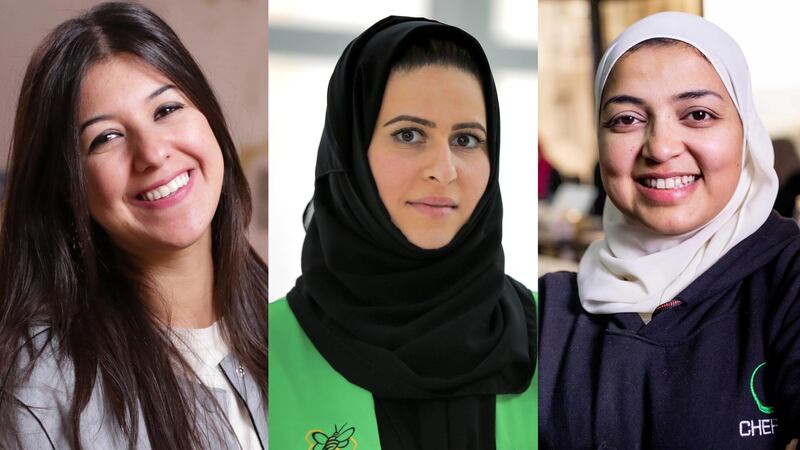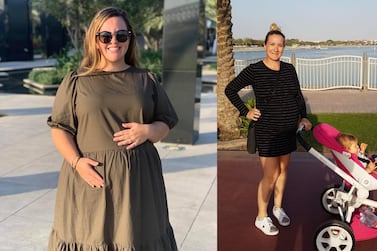Cartier may not be the first company that springs to mind when thinking of business incubators, but that is precisely what the French jewellery house has aimed to be since 2006.
Through the Cartier Women’s Initiative Awards, it seeks to provide meaningful support to female entrepreneurs in the as-yet male-dominated world of business start-ups.
The annual initiative divides the world into seven regions and invites women to submit their ideas and business plans, from which the initiative selects the strongest 21 (three from each region), who are then given one-on-one business and financial training by industry experts.
In June, one woman from each region will be named as laureate for 2020 and receive $100,000 (Dh367,250) each, with the rest receiving $30,000.
All 21 women will also receive a scholarship for the Insead Social Entrepreneurship Executive Education Programme, and ongoing assistance.
The Middle East and North Africa is one of the seven regions, and last week, Cartier announced the three entrepreneurs from the region who are bringing about change through their innovative ideas, energy and determination.
With their companies already up and running, each woman is helping to shape a brighter future.
The National finds out their stories.
Nadia Gamal El Din of Rahet Bally
Cartier Women's Initiative: Nadia Gamal El Din
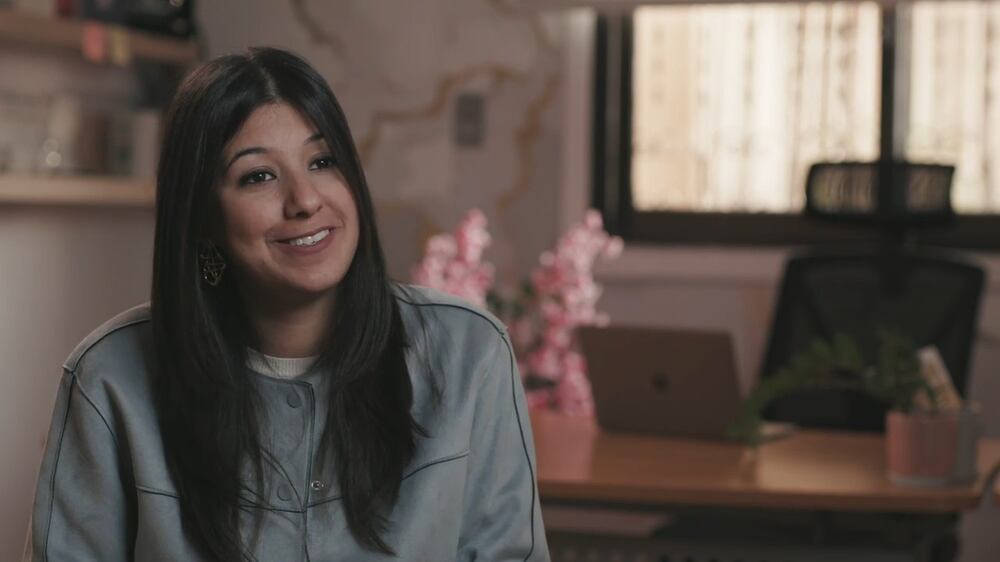
Egyptian Nadia El Din set up Rahet Bally in 2014 as an all-inclusive platform to support mothers financially, physically, emotionally and intellectually – online and in person.
“After I had my son, I was so lost. I said to myself: ‘What on earth am I going to do with this baby?’” says El Din.
Up to 20 per cent of new mothers are vulnerable to postnatal depression, and with no siblings or friends around – and with a young baby in tow – El Din found herself overwhelmed. From this came the realisation that too many of her countrywomen were being left to suffer alone.
Rahet Bally, which translates to “peace of mind”, was set up as a Facebook group. El Din was keen for it to be a space where women could access practical help from professionals in real time.
She invited psychologists, paediatricians and nutritionists whom members could connect with and receive dedicated answers from. Within a month, more than 1,000 professionals came forward to help the 3,000 mothers who had signed up.
Six years later, El Din estimates that as many as 150,000 women across Egypt use the platform, either online or at the three facilities in Cairo.
El Din’s latest venture is called the Cloud and offers mothers in Cairo a space to bring their babies. The women can rest in specially designed sleep pods, work in the office area, build their skills in workshops, socialise or join a book club, while a background-checked, all-female staff of nearly 100 look after their children.
“Mums start crying when they come in because it’s the first time anyone is taking care of them. They can have a shower. They can drink a cup of coffee while it’s still hot. It’s a place where they can actually breathe again,” El Din says. “I’d love to have the Cloud in every district, to have a hundred workshops a day, and to expand outside Cairo to the rest of the Mena region.”
Dr Rasha Rady of Chefaa
Cartier Women's Initiative: Rasha Rady
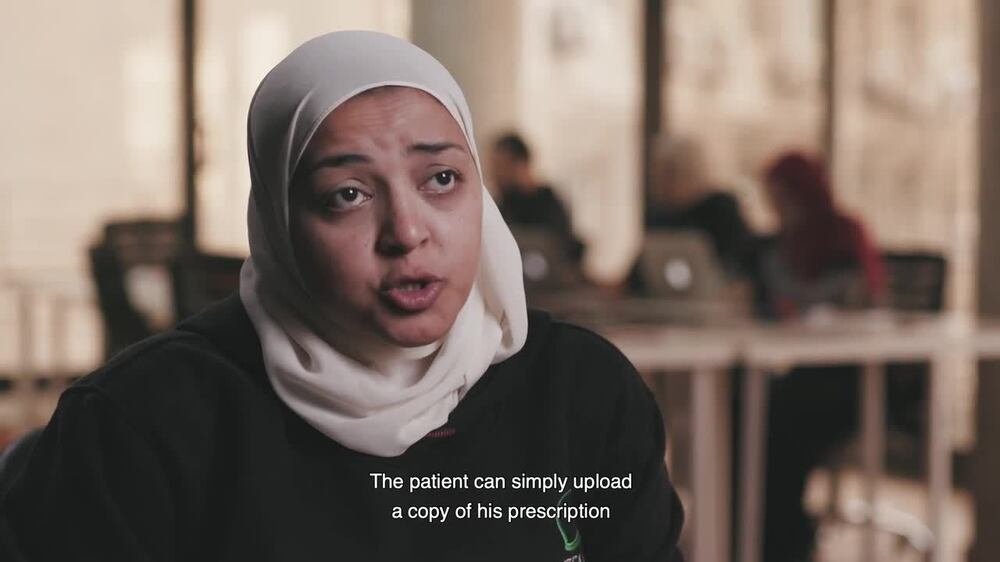
Egyptian Dr Rasha Rady set up an organisation called Chefaa in 2017, with the aim of helping chronic patients access medication using artificial intelligence and GPS tracking.
As a paediatric haematologist, Rady is aware of the problems within the healthcare system in her country, which she says is overstretched and underfunded, and too often lacks accurate record-keeping.
As a result, patients may face worrying uncertainty about receiving the medication they have been prescribed. Inconvenient as this is for those with short-term illnesses, for those facing chronic ailments – requiring months, if not years of ongoing medication – it can be terrifying, and is something Rady had witnessed first-hand.
“In Egypt, pharmacy systems are still primitive,” she says. “When I worked at the Cairo University Children’s Hospital, a patient might come from a three-day car ride away to refill a prescription. Suddenly, when he arrives, the medicine is not available.”
When a friend, Doaa Aref, was diagnosed with thyroid cancer in 2017, Rady felt urgent action was required. “She found out the surgery was the easy part,” Rady says. “She said: ‘Do you realise, I can order anything online – except the medication I need to stay alive?’”
When Aref recovered, the pair began to work together, drawing on Rady’s medical knowledge and Aref’s digital marketing expertise.
The result was Chefaa, a GPS-enabled app through which patients can order medicines online. The platform connects to an AI-powered system at pharmacies, which will scan stock to see if the medication is available. If so, it accepts the order and dispatches it to the patient, all without the need for them to leave the house.
Since launching three years ago, Rady can see the difference it is making to people’s lives. “In the clinic, I see an average of 1,500 patients monthly. Through Chefaa, I fulfil 22,000 orders per month for both new and returning patients. The number of patients I have an impact on is more than 20 times the number I used to have.”
A related tool, the Chefaa blog clocks about 14,000 visits per day. It helps to guide and educate the public about the safe use of prescriptions, and offers another way for older patients (who make up a large percentage of chronic illness sufferers) another way to connect with the service.
Encouraged by the uptake, the pair have a bold vision for the future of Chefaa. “I’m looking forward to our millionth order. The [first] million means 1 per cent of the population of Egypt. We hope to do that by the end of 2020,” says Rady. “I have the dream that Chefaa will become a verb, that people will use the word when they talk about filling their prescriptions, like they say 'Uber' or 'Google'.”
Rihab Hasanain of Blooming Bs
Cartier Women's Initiative: Rihab Hasanain
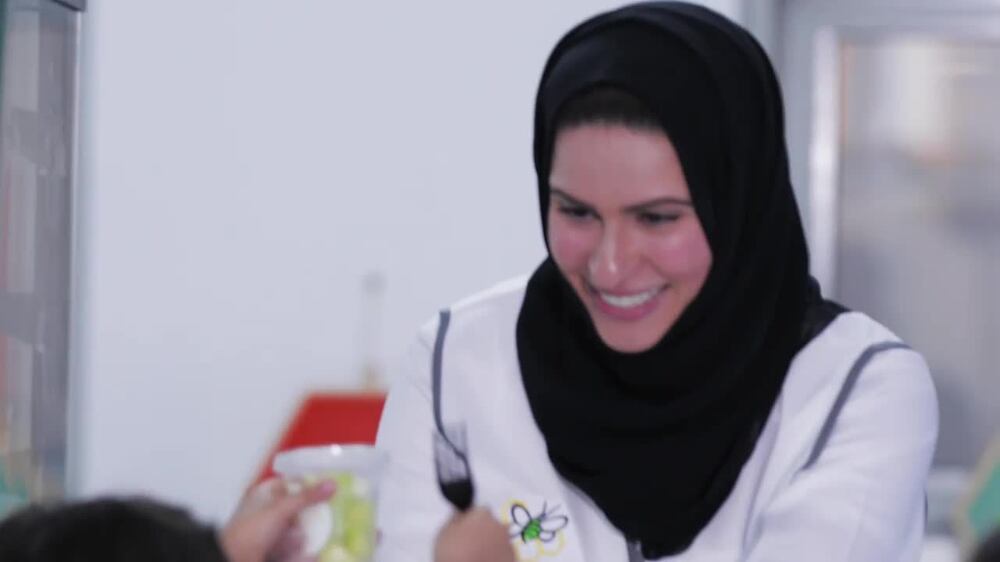
Rihab Hasanain created Blooming Bs (Blooming Box, Brain and Body) in 2016 in response to the rising incidence of childhood obesity in her native Saudi Arabia. Her aim was to provide fresh, healthy food to schoolchildren.
When Hasanain was searching for a school for her daughter, she found that the food being offered wasn’t the most nutritious. “It was junk food being sold in the school cafeteria,” she says. “Children are eating it for breakfast, and then they are supposed to go and study.”
She also learnt that some parents, too, would add sweets to their child’s lunch box for convenience. Knowing that obesity exposes children to a plethora of health risks, including insulin resistance and type 2 diabetes, breathing problems such as asthma and sleep apnoea, and an increased risk of cardiovascular disease later in life, Hasanain – who has a doctorate in health services management – set up Blooming Bs.
The company served 60,000 meals in its first year of operation, a figure that doubled to 122,000 in its second year. “In our third year, we are aiming to increase that by 50 per cent,” says Hasanain. “We are catering meals for a school that has 400 students and another that has more than 1,000, and now we are receiving requests for schools that have more than 2,000 students.”
The demand means Hasanain has had to increase staff levels from two to 20, further offering employment opportunities to her countrywomen. Coming from all over Saudi Arabia, each woman brings her region’s recipes and styles of cooking, which in turn has given Blooming Bs a huge menu to work with.
Hasanain is proud of the food her company delivers. “It took a little bit of time for us to understand exactly what the children like,” she admits, “but we came up with a menu that is loved by the majority of the them”.
